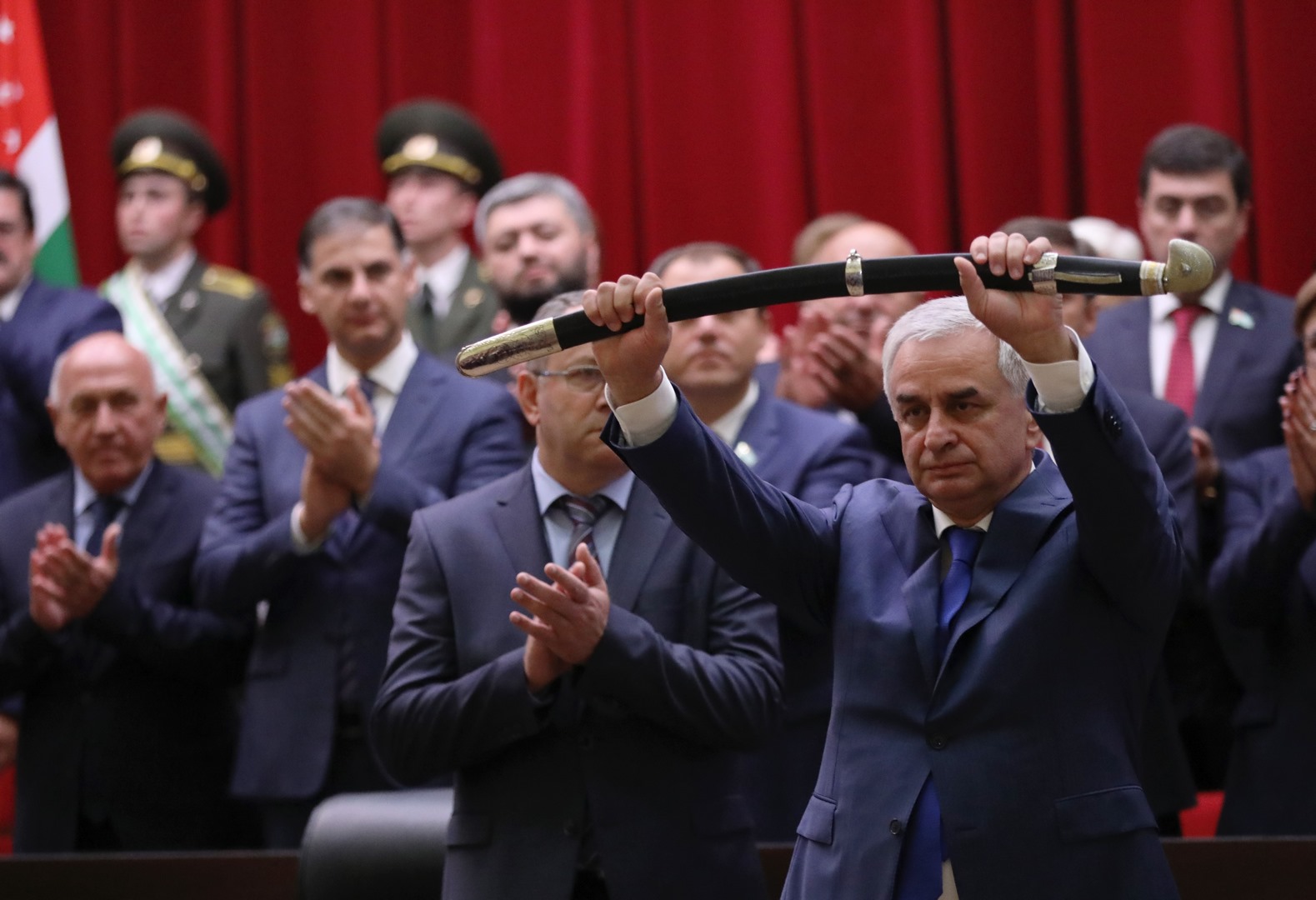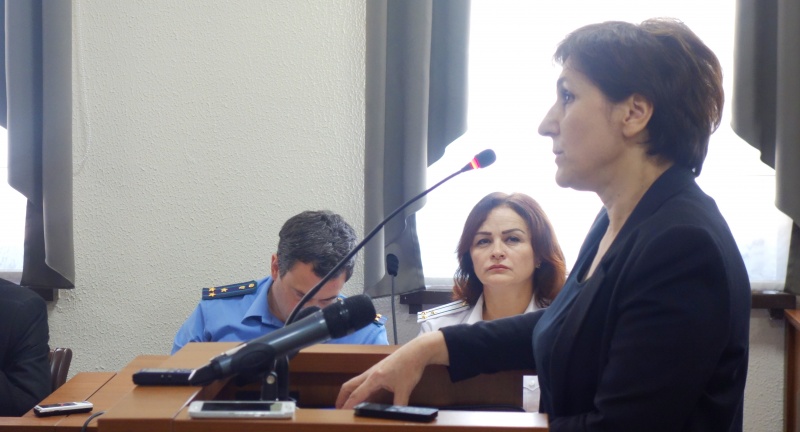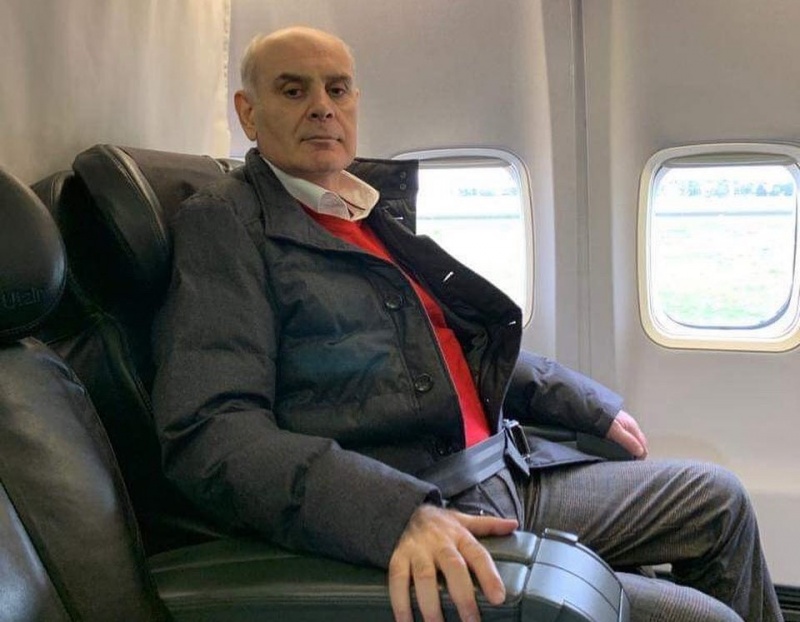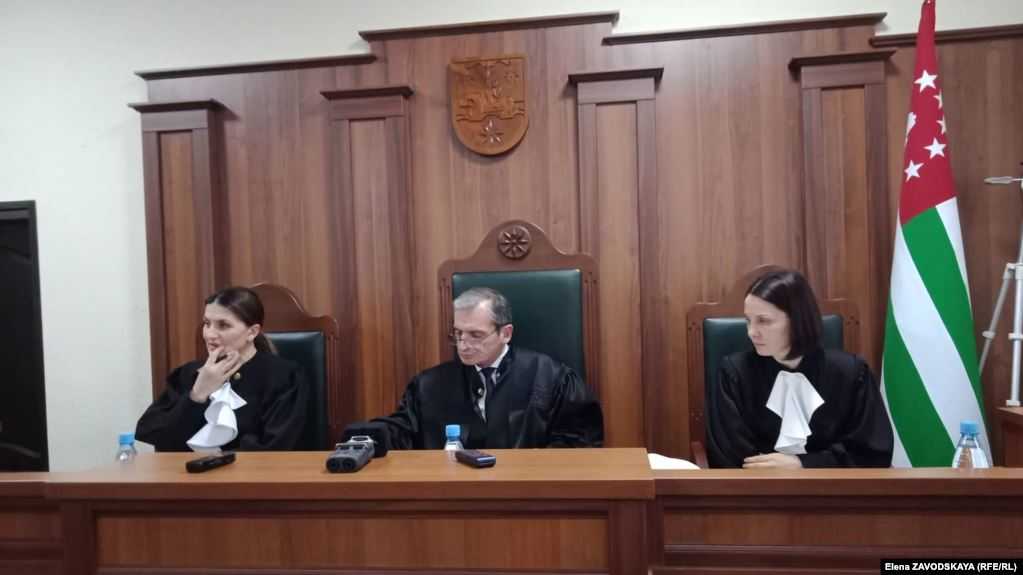Abkhazian president’s legal woes continue 47 days after election


Despite being sworn in over two weeks ago, legal challenges to Abkhazian President Raul Khadzhimba’s election victory continue to mount. Alkhas Kvitsiniya is continuing to challenge the Central Election Commission’s results 47 days after the disputed election.
On 23 October, the Supreme Court of Abkhazia dismissed a cassation appeal filed two days earlier by Human Rights Commissioner Asida Shakryl.
Shakryl was challenging the Supreme Court’s 20 September decision to strike down presidential runner-up Alkhas Kvitsiniya’s bid to suspend the Central Election Commission’s (CEC) results.
The vote on 8 September was the second round of presidential elections after none of the nine candidates crossed the 50% threshold required to win in the first round. In the first round on 25 August, Khadzhimba received 25% of the vote while Kvitsiniya came second with 23%.
In their 23 October ruling published on Thursday, the Supreme Court said that the Abkhazian Public Defender did not represent any side involved in the lawsuit mounted by Kvitsiniya and hence did not have the right to file the cassation appeal.
The supervisory panel under the Supreme Court must still review a similar cassation appeal by Kvitsiniya himself.
Kvitsiniya’s team appealed against the 20 September judgement in favour of Khadzhimba on 7 October.
Within the same motion, the legal team of the opposition leader unsuccessfully requested to apply an interim measure against Khadzhimba reassuming office on 9 October, until the dispute was over.
Hence, while Khadzhimba was inaugurated on 9 October, his victory and all his decisions as president thereafter are still being legally disputed.
On 14 October, Khadzhimba reinstated Valeriy Bganba as Abkhazia’s Prime Minister, after Bganba’s powers formally ended and the government cabinet dissolved after Khadzhimba swearing-in on 9 October.
On 21 October, Khadzhimba also appointed Kan Kvarchiya as the new mayor of the capital Sukhumi (Sukhum).
Arguments against Khadzhimba’s re-election
Alkhas Kvitsiniya, the chair of the opposition Amtsakhara Party, refused to concede after the polls closed on 8 September. He has questioned the legitimacy of a winner ‘with less than 50% of votes’.

Abkhazian Human Rights Commissioner Asida Shakryl unsuccessfully requested to be represented as a defender of the ‘rights of voters’ during the first court challenge mounted by Kvitsiniya in September.
She has maintained that by barring her from the lawsuit, the Supreme Court blocked her from ‘fulfilling her duties’ and from advocating for the interests of all Abkhazian citizens.

Shakryl shared Kvitsiniya’s argument that the CEC’s announcement of Khadzhimba’s win violated Article 19 of the Law on the Elections of the President of Abkhazia.
The law states that the winner in a run-off vote is the candidate who not only receives more votes than their opponent but whose share of the vote surpasses the number of ballots cast against them.
The Abkhazian elections include an option ‘against all candidates’ on the ballots. According to the CEC, over 3,100 voters, almost 4% of the 84,000 who voted, voted against both candidates on 8 September.
In his address to supporters at his party headquarters in Sukhumi on the night following the election, Kvitsiniya retracted a pledge made three days earlier with Khadzhimba to not to take into consideration votes cast ‘against all’ in defining the winner.
The runner-up argued that a ‘gentlemen’s agreement’ yielded to the law.
Kvitsiniya went to the Supreme Court on 9 September after the CEC dismissed his appeal to recognise the election as invalid and call a new one.
Later that day, CEC Chair Tamaz Gogiya announced the final results confirming that Khadzhimba had been re-elected and his running mate, Aslan Bartsits, was to be the new Vice-President.
Post-election ‘political crisis’
On 18 September, several civil society leaders, including Astamur Taniya, a close ally of first Abkhazian President Vladislav Ardzinba, urged Khadzhimba and Kvitsiniya, ‘irrespective’ of the Supreme Court’s decision on the election results, to pledge to undertake constitutional reforms.
They insisted that overcoming the ‘political crisis’ in Abkhazia would require moving from a presidential to a parliamentary form of government and adopting a mixed electoral system.
The following day, Raul Khadzhimba appealed to his supporters. He ignored the call for constitutional changes, instead announcing that Kvitsiniya had rejected his offer to be Prime Minister as a way out of the crisis.
Khadzhimba also said he had rejected Kvitsiniya’s counter-offer to appoint Aslan Bzhaniya as Prime Minister.

Bzhaniya, an Abkhazian MP, was replaced by Kvitsiniya as a candidate for the presidency after he fell suddenly ill and was hospitalised. The timing and seriousness of Bzhaniya’s illness triggered allegations among his supporters that he was poisoned.
[Read more on OC Media: Abkhazian presidential challenger vows to fight election despite ‘poisoning’]
Local news outlet Apsny Today quoted Bzhaniya as saying that he had returned from Berlin to Moscow on 13 October and was continuing his recovery there, which he said would last ‘about a month and a half more’.
For ease of reading, we choose not to use qualifiers such as ‘de facto’, ‘unrecognised’, or ‘partially recognised’ when discussing institutions or political positions within Abkhazia, Nagorno-Karabakh, and South Ossetia. This does not imply a position on their status.









